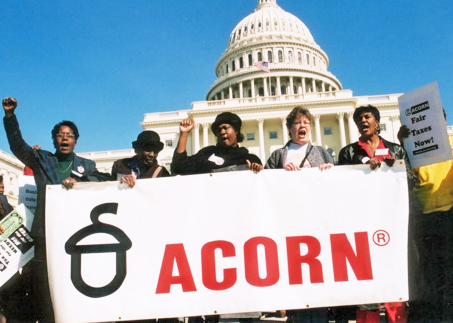It recently came to light that individuals employed by ACORN have been apparent accomplices with regard to the conduct of alleged criminal activities. Surprisingly, it was the investigative ingenuity of ordinary citizens who brought this information to the attention of the public. As a Member of Congress, these revelations are of interest to me in that ACORN is the beneficiary of substantial federal funding. As the former Attorney General of my state of California, this story is of great concern to me for an entirely different reason. Ironically, it is those who revealed the alleged illegal acts, rather than the perpetrators of those acts, who find themselves under threat of criminal prosecution. To anyone with a modicum of common sense, this would seem to turn justice on its head.

How could this happen? Certain states, such as Maryland, have statutes prohibiting the recording of conversations without the consent of the other party. Unfortunately for the young investigative entrepreneurs, their disclosure of alleged illegal activities carried out by the ACORN employees took place in these so-called “two party consent states” which prohibit the recording of confidential communications without the permission of all parties.
There have been comments released by the State’s Attorneys Office for Baltimore that:
If it is determined that the audio portion now being heard on YouTube was illegally obtained, it is also illegal under Maryland Law to willfully use or willfully disclose the content of said audio. The penalty for the unlawful interception, disclosure or use of it is a felony punishable up to 5 years.
Although this is may be an accurate statement of Maryland law, it should also be noted that if there were ever a case for the exercise of prosecutorial discretion, this would be it. Under the laws of the states, prosecutors have absolute discretion as to whether or not to bring a prosecution. The fundamental question in any case is whether or not the interests of justice are served by proceeding with a prosecution. In this regard, it must be asked whether the purpose of the underlying statute would be undermined if the decision were made to decline to prosecute.
The facts surrounding the recording and public disclosure of wrongdoing by ACORN suggest that the interests of justice would not be served by prosecuting those involved in obtaining and publishing that information. The purpose of the Maryland statue is to ensure the confidentiality of conversations where there is an expectation of privacy. Prosecution in such a case would make a fool of the law.
In following the logic of the seminal U.S. Supreme Court case of Katz v. United States, the issue is whether one has a subjective expectation of privacy which society is prepared to recognize as reasonable. Those who facilitate the commission of criminal acts have no reason to assume that their conversations are cloaked with an expectation of privacy under the protection of the law. Furthermore, according protection to such conversations is a clear contravention of the public interest in the disclosure of information relating to the commission of a crime. In an analogous context, the disclosure of confidential information by government employees is protected under circumstances where the disclosure relates to a matter of public concern (so-called “whistleblower” defense).
In the ACORN caper, the interest of the public was well-served by the disclosure of the actions of its employees. American taxpayers have a legitimate interest in knowing that their money will not be used by organizations whose employees, acting within the scope of their duties, explicitly or implicitly encourage clients to engage in illegal acts.
Furthermore, both the main street media and the evolving new media should be concerned about the prospect of a prosecution in this case. It does not take much to imagine a slippery slope where the same factors leading to a prosecution in this case could be applied to others. The potential chilling effects on the disclosure by the “whistleblowers” of information which the public has a right to know should not be discounted. Prosecuting the whistleblower, rather than the perpetrator, would only serve to encourage more bad actors in the public till.
From the vantage point of a former prosecutor and as an official charged with the responsibility of stewardship of the public purse, I believe all of the equities point to the exercise of prosecutorial discretion by declining to prosecute those who have in fact provided a public service to our nation. In other words, the good guys ought to win this one!
COMMENTS
Please let us know if you're having issues with commenting.